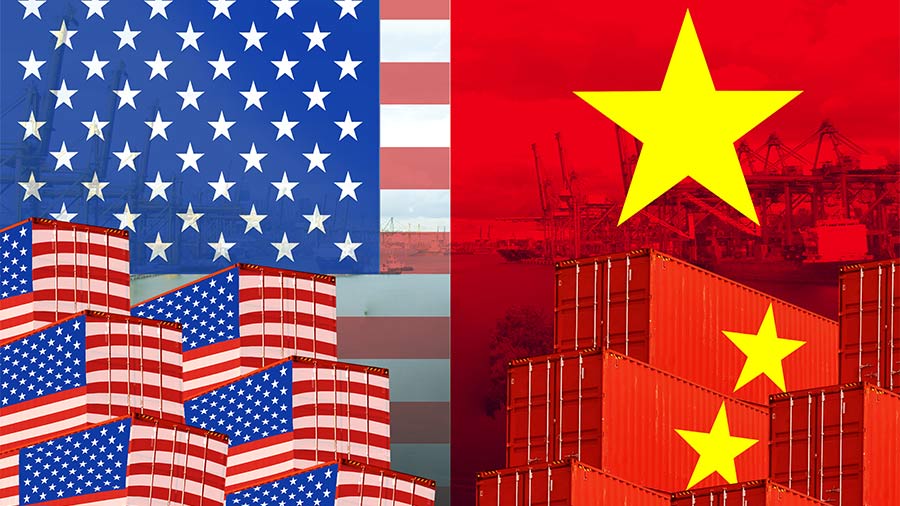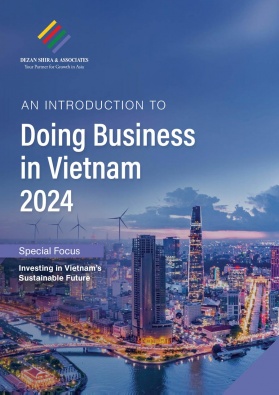Draft Amendment to Vietnam’s Pharmacy Law Proposes New Incentives for Foreign Firms
The Ministry of Health has released a draft amendment to the Pharmacy Law that would give foreign pharmaceutical companies more rights and incentives. Here are the details.
Vietnam’s Ministry of Health (MOH) has released a draft amendment to the country’s 2016 Pharmacy Law that seeks to strengthen the rights and responsibilities of foreign-invested enterprises (FIEs) in the pharmaceutical industry and expand policy incentives.
According to the MOH, the draft amendment seeks to address obstacles uncovered during the implementation of the Pharmacy Law that have led to “certain issues and difficulties in the production and business of pharmaceuticals”.
The proposed amendments include changes and additions to provisions related to the terminology used, policies, regulations, raw materials, drug registration, export and import of drugs and raw materials, drug recalls, advertising, clinical trials, quality management, and price management.
In this article, we will focus on the amendments that will impact incentive policies and the rights of FIEs.
See also: Amendments to Vietnam’s Regulations on Pharmaceutical Product Labeling.
Incentive policies for the pharmaceutical industry
The draft amendment proposes several changes to Article 7 of the Pharmacy Law, which stipulates provisions on state policies on pharmaceuticals. The amendments do not provide for specific incentive policies and programs but rather set legal provisions requiring state agencies to foster the growth of the pharmaceutical industry through incentives.
First, the draft amendment proposes to define various types of incentives and expand eligible pharmaceutical fields.
Whereas the previous version simply says that it is a state policy to provide “investment incentives” for various activities, Clause 3 of Article 7 of the draft amendment specifies the following types of incentives:
- Incentives for investment/special investment incentives regarding tax policies;
- Incentives for land leasing;
- Incentives for capital borrowing;
- Other incentives and support for administrative procedures related to investment and business;
- Issuance of certificates for pharmaceutical business qualifications;
- Issuance of drug circulation certificates;
- Incentives and support for raw materials for pharmaceuticals;
- Incentives for scientific research on pharmaceutical formulation technology and biotechnology for the production of new drugs; and
- Other investment support policies as stipulated by the law.
The scope of activities eligible for these investment incentives has also been expanded to include fields such as the manufacturing of new drugs, generic specialty drugs, high-tech drugs, specialty drugs created through technology transfer for production in Vietnam, essential drugs, drugs for the prevention and control of social diseases, vaccines, biological products, and biotechnological drugs.
Clause 4 of Article 7, which stipulates how funds from the state budget or legally sourced state revenue can be used to purchase pharmaceuticals, has been amended to make it easier for state funds to be used to purchase import drugs.
Previously, this clause stipulated that state funds could not be used to bid on the import of certain drugs (based on technical criteria) if there are already domestically produced drugs that meet the requirements for treatment, drug prices, and supply capability. The amended clause now states that there must be at least three domestic manufacturers that produce the drugs in question and that they must meet the EU’s good manufacturing practice (EU-GMP) standards or EU-GMP-equivalent standards, in addition to other criteria.
Finally, the draft amendment also adds a new clause (Clause 12) that directly encourages foreign investment and technology transfer in Vietnam’s pharmaceutical industry.
The new clause calls for encouraging “research and production, technology transfer, and foreign investment in the production of pharmaceutical raw materials, manufacturing new drugs, generic specialty drugs, specialty drugs, biotechnological drugs, herbal medicines, and national brand pharmaceuticals, and production of pharmaceutical ingredients.”
While the draft amendment does not stipulate specific incentives to achieve this, it gives a clear directive to policymakers to formulate and implement incentive measures to attract foreign capital.
New rights and responsibilities of FIEs
Rights of FIEs in the pharmaceutical industry
The draft amendment has added a new Article (Article 53a) which stipulates the rights and responsibilities of foreign-invested enterprises (FIEs) in the pharmaceutical industry. Under this article, the rights of FIEs in the pharmaceutical industry are extended to include many of the same rights as domestic pharmaceutical companies.
For example, FIEs would be formally permitted to operate in a wide range of pharmaceutical fields and activities.
These include (but are not limited to):
- Carry out one, multiple, or all pharmaceutical business activities (provided they meet the conditions corresponding to each type of business establishment);
- Enjoy preferential policies when conducting pharmaceutical business activities; and
- Advertising pharmaceuticals according to the provisions of law.
In addition, FIEs will have many of the same rights as domestic enterprises in a range of pharmaceutical fields, which we have summarized below.
Drug and pharmaceutical materials manufacturing, including (but not limited to) the following activities:
- Carrying out research and trial production; franchising and receiving production franchises;
- Registering for circulation of drugs and raw materials;
- Importing and purchasing raw materials to serve production;
- Importing drugs and raw materials to serve research, testing, and use as samples for drug circulation registration of establishments;
- Selling imported raw materials to serve that facility’s drug production to another drug manufacturing facility;
- Wholesale of drugs and raw materials to drug wholesalers and retailers and medical examination and treatment establishments.
Export and import of drugs and raw materials: FIEs engaged in this field are only permitted to perform activities directly related to the distribution of drugs and raw materials in Vietnam, including:
- Importing drugs and raw materials specified in the Pharmacy Law;
- Registering for circulation of drugs and raw materials; and
- Exporting drugs and raw materials specified in the Pharmacy Law.
Provision of clinical drug testing services, including (but not limited to) the following activities:
- Conducting clinical drug trials according to regulations;
- Importing and purchasing chemicals, standards, and drug samples for clinical drug testing activities; and
- Using the results of clinical drug trial research according to agreements with agencies, organizations, and individuals that have clinical trial drugs.
Provision of drug bioequivalence testing services, including (but not limited to) the following activities:
- Conducting drug bioequivalence testing in the clinical research and biological fluid analysis phases;
- Conducting bioequivalence research activities of drugs according to regulations;
- Importing and purchasing chemicals, standards, and drug samples for bioequivalence testing of drugs; and
- Using the results of bioequivalence testing of drugs according to agreements with agencies, organizations, and individuals that have bioequivalence testing drugs.
Responsibilities of FIEs in the pharmaceutical industry
Under the draft amendment, FIEs will also have the same responsibilities as those of domestic enterprises. These responsibilities depend on the particular field in which the FIE is operating. The basic responsibilities include (but are not limited to):
- Having a certificate of eligibility for pharmaceutical business and only engaging in the type of pharmaceutical business, scope, and location specified in this certificate;
- Ensuring the maintenance of pharmaceutical business conditions during business operations;
- Withdrawing drugs and raw materials when required (as stipulated in the Pharmacy Law);
- Compensating organizations and individuals who have suffered damages due to errors made by the company;
- Publicly displaying the pharmaceutical practice certificate and the certificate of eligibility for pharmaceutical business at the business establishment;
- Submitting annual reports and reports as required by the competent drug management authority;
- Storing drugs and raw materials following the conditions stated on the label;
- Clearly stating the name of the drug, concentration, and expiration date for users in the case of retailing drugs not in the original packaging; and
- Only selling prescription drugs at retail drug establishments when a prescription is provided.
FIEs must also uphold responsibilities specific to the various pharmaceutical fields and industry sectors.
Note that FIEs are not permitted to directly engage in the distribution of drugs and raw materials in Vietnam unless they have produced them themselves. These prohibited activities include:
- Selling and delivering drugs and raw materials to medical examination and treatment facilities, retail establishments, individuals, and organizations that are not drug wholesale establishments, raw material suppliers, and establishments not engaged in the processing of drugs by the establishment (except for aid and humanitarian purposes);
- Accepting orders and receiving payments for drugs and raw materials from medical examination and treatment facilities, retail establishments, individuals, and organizations that are not drug wholesale establishments or raw material suppliers;
- Transporting and storing drugs and raw materials, except in cases of transporting drugs from import establishments to drug wholesale establishments and raw material suppliers (or for aid and humanitarian purposes);
- Determining and imposing the selling prices of drugs and raw materials distributed by other pharmaceutical business establishments;
- Deciding on the distribution strategy and business policies of drugs and raw materials distributed by other pharmaceutical businesses;
- Developing plans for the supply of drugs and raw materials to medical examination and treatment facilities in Vietnam; and
- Providing financial support to organizations and individuals directly purchasing drugs and raw materials from the company itself to manipulate the distribution of imported drugs and raw materials.
Simplified administrative measures for import of research drugs and raw materials
Several of the changes in the draft amendment aim at simplifying some administrative procedures.
Clause 2 of Article 54 has been amended to allow the import of raw materials used to produce drugs that already have a certificate of registration for circulation in Vietnam and will not need to be registered again, allowing companies to only have to undergo the registration procedures once.
Meanwhile, Article 60, which deals with the import and export of drugs and raw materials, has been amended to make it easier the import and export drugs for certain purposes.
First, the scenarios under which raw materials can be imported even if they do not have a certificate of circulation have been expanded to include the production of drugs and semi-finished drugs for export. This would streamline the import procedures of raw materials for companies producing pharmaceuticals solely for export.
In addition, a new clause has been added to facilitate the import of drugs for research purposes. Clause 5a states that companies can import research drugs and drugs that do not have a certificate of circulation registration in Vietnam that are to be used for clinical trials without having to carry out import licensing (except for drugs subject to special controls). The quantities and types of drugs imported must adhere to the approved clinical trial research protocols.
About Us
Vietnam Briefing is published by Asia Briefing, a subsidiary of Dezan Shira & Associates. We produce material for foreign investors throughout Eurasia, including ASEAN, China, India, Indonesia, Russia & the Silk Road. For editorial matters please contact us here and for a complimentary subscription to our products, please click here.
Dezan Shira & Associates provide business intelligence, due diligence, legal, tax and advisory services throughout the Vietnam and the Asian region. We maintain offices in Hanoi and Ho Chi Minh City, as well as throughout China, South-East Asia, India, and Russia. For assistance with investments into Vietnam please contact us at vietnam@dezshira.com or visit us at www.dezshira.com
- Previous Article Thua Thien Hue: An Emerging Investment Destination
- Next Article Vietnam Market Entry Strategy for Foreign F&B Companies: Report




























